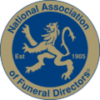We recommend that you contact us as soon as possible, so we can understand details of your individual circumstances. This will allow us to give you personalised advice and answer any questions. We are also available to discuss matters around end of life care.
When A Death Occurs
We'll guide you through the next steps...
When the death is unexpected
If an unexpected death occurs outside of a hospital the emergency services will notify the appropriate department. In some circumstances the police will be informed and the local Coroners service may transfer care of the deceased to themselves.
If the death occurs in Hospital
The family and the funeral directors need to request the necessary paperwork from the Bereavement Service within the hospital.
If the death occurs at home or in a Nursing / Care Home
Once the death has been confirmed we as funeral directors will transfer care of the deceased to our chapel of rest. This transfer can happen at any time, we would subsequently work with the GP surgery to request the necessary paperwork.
Before the funeral can take place
We cannot conduct a funeral before all the relevant paperwork is completed – please refer to ‘Documents Required to Conduct a Funeral’. Though we will coordinate all the necessary funeral paperwork, there are 2 steps that you will need to follow which are stated below.
Step 1: Obtain the Medical Certificate of the Cause of Death
The last attending doctor will issue a ‘Medical Certificate of the Cause of Death’.
Where it is not possible for a doctor to establish the medical cause of death, it would be necessary to involve the Coroner. The Coroner would usually be involved in the following circumstances:
- All sudden and unexplained deaths.
- Cause of Death unknown.
- Where the cause of death is unnatural, e.g. suicide, accidents, poisoning.
- If the death occurred while the patient was undergoing a medical procedure.
If the death has been reported to the Coroner, they may decide to hold a post mortem. If the Coroner holds a post mortem the appropriate documentation will be sent to the Registrar of Births and Deaths so that you may complete the Registration.
Step 2: Register the Death
In England, ideally a relative must register the death. To locate the relevant registry office of the area in which the death occurred visit www.gov.uk/register-offices and contact them to make an appointment:
Take the following with you on the day of your appointment.
- The Medical Certificate of Cause of Death (unless the coroner decided to hold a post mortem)
- The deceased person’s most recent Passport
The registrar will ask you for the following information:
- the date and place of death
- the full name of the person and their last address
- the person’s date and place of birth
- the person’s occupation and, in the case of a person who was married or widowed, the full name and occupation of their spouse
- if the person was still married, the date of birth of their husband or wife
- whether the person was receiving a pension or other social security benefit

The Registrar for Births, Deaths & Marriages will then issue you with:
- A ‘Certificate for Burial or Cremation’ (also known as the ‘Green Certificate’), which authorises the burial or cremation. The original certificate should be given to us at the arrangement appointment. If a coroner issues the ‘Medical Cause of Death’ then the Registrar does not give this certificate.
- The ‘Death Certificate’, for other legal and administration purposes will be issued. You may obtain as many original copies as you need for a small charge.



